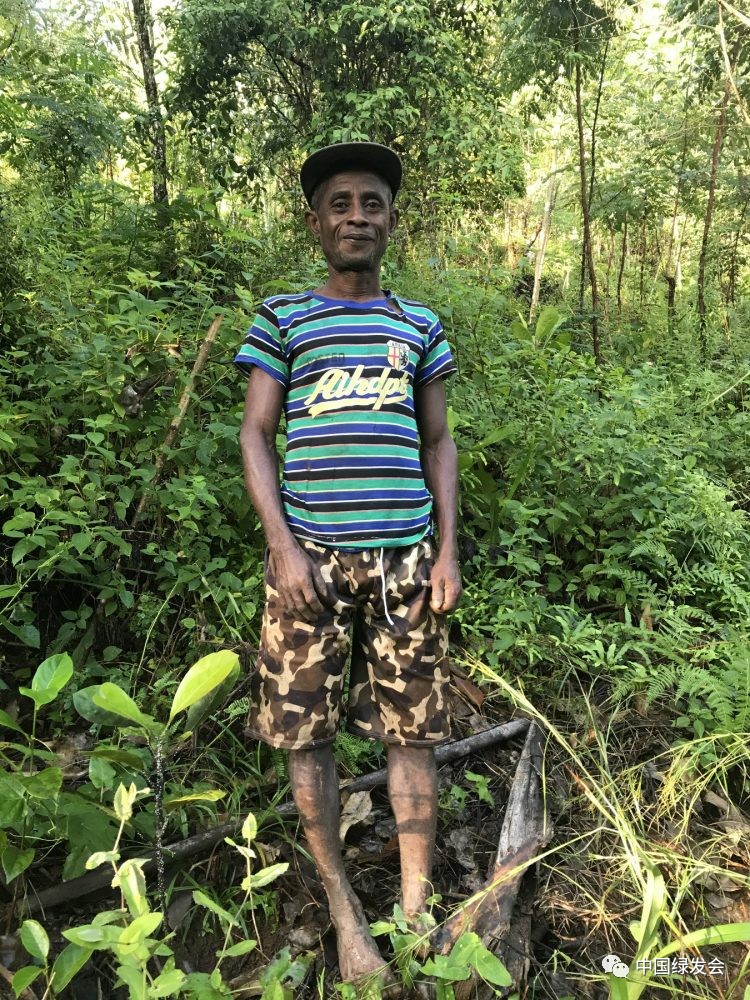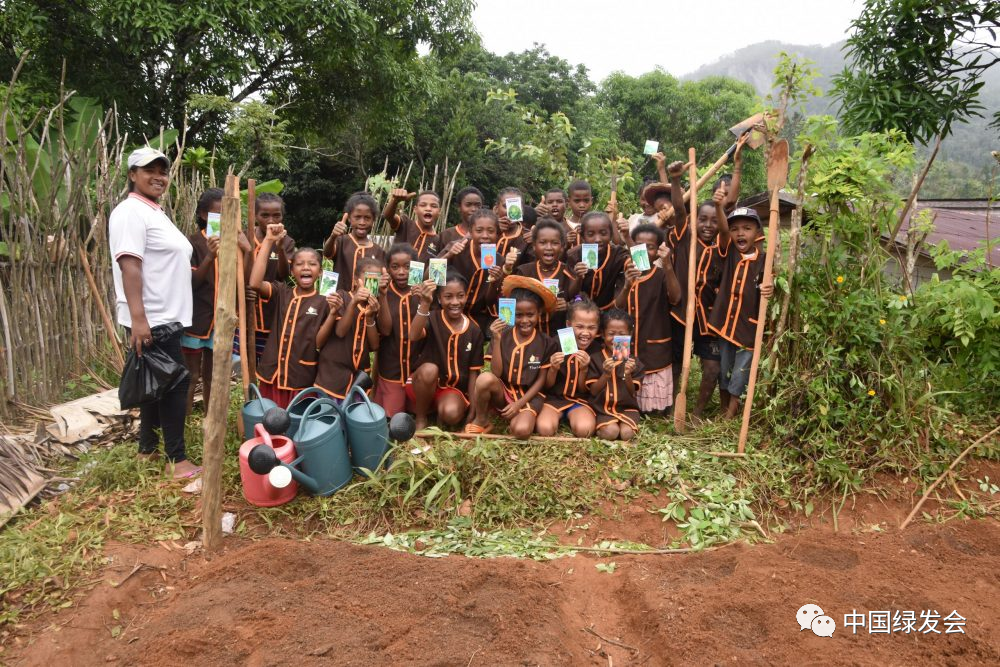Standing in the storm is hard enough, but for many people living in Madagascar, they thrive in it.
As one of the poorest countries in the world, overcoming obstacles is a normal part of everyday life for the people of Madagascar. After working with the community for over 10 years, Madagascar Biodiversity Partnership(MBP) has found the determined initiatives of outstanding individuals who continue to support local communities and protect local wildlife.
Razafy Andrianasolo is an assistant manager in a reforestation nursery near Kianjavato in southeast Madagascar. He has been active in protecting the forest on Vatovavy mountain since 1990, home of critically endangered greater bamboo lemurs(Prolemur simus), black-and-white ruffed lemurs(Varecia variegata) and endangered aye-ayes. Razafy is the first person on site if a fire gets out of hand, mobilizing the community to action. He is now a community ranger with VOI Taratr’i Vatovavy, a volunteer-run organization of elected individuals that protects natural resources. Their presence gave local people the strength to challenge an influential person from their own community who they say, as translated by our field partners, “has a power in the village and peoples are afraid to send complain about him”.

Our problem is that many of the people who are developing protected areas illegally see no other way to support themselves. Aubin Andry, a supervisor at our northern-most site at Montagne des Fran?ais National Park, also accompanied the VOI and authorities on RAG-supported patrols. On a single day in June, two trucks carrying a total of 360 sacks of charcoal were stopped leaving the park. The charcoal industry has an entire commodity chain, with the people who cut the trees at the bottom where they assume the greatest risk with the least payback. Aubin reported that one man traveled more than 1500 km from home to look for work in the city of Antisiranana, the country’s northern seaport, only to find himself illicitly entering the nearby national park to cut trees to produce charcoal.
The pandemic has exacerbated this situation. Around Kianjavato, many people earn their main income from selling products like bananas to collectors who distribute the items around the country; but since there were no trucks coming during the Covid-19 lockdown, they could not sell their produce. In addition to Covid-19, there was a drought. From December 2020 – March 2021, many children quit school because they did not have enough food to eat. Throughout this time, MBP was able to continue the reforestation efforts which not only expand lemur habitat but, through the use of RAG funds, provided reliable supplementary income to 325 people at three different sites who assist in the nurseries.

The school gardens and reforestation programs are just two components of MBP conservation approach, an approach that is only effective because of the long-term relationships and our aiders .
MBP, which is a Malagasy NGO, is the first implementation point of the CBCGDF(China Biodiversity Conservation and Green Development Foundation) -Re:wild-Conservation Fund project.
Original Chinese Article:https://mp.weixin.qq.com/s/FKz7DTnWi9ZrOKjJ6DQN3g
Translator: Daisy
Editor: Lucy
Contact the editors: V10@cbcgdf.org;+8617319454776

Contribution
Do you know? CBCGDF is a non-profit organization. We rely on crowd-funding and
donations. You have the opportunity to help us to advance biodiversity conservation. Donate TODAY to power up the movement to make it a better world
for all life.
https://www.paypal.me/CBCGDFChina
http://www.cbcgdf.org/English/ConfirmDonaTion/0.html
![]()
